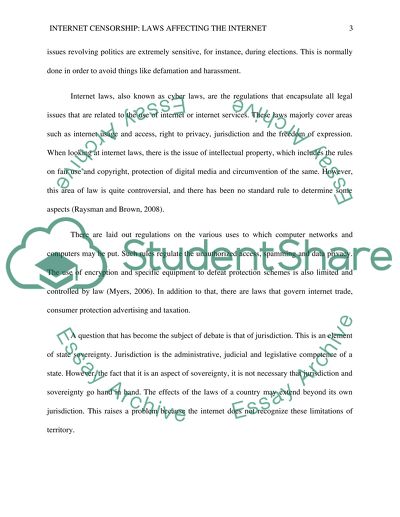Cite this document
(“Internet Censorship : Laws effecting the Internet Research Paper”, n.d.)
Retrieved from https://studentshare.org/journalism-communication/1462990-internet-censorship-laws-effecting-the-internet
Retrieved from https://studentshare.org/journalism-communication/1462990-internet-censorship-laws-effecting-the-internet
(Internet Censorship : Laws Effecting the Internet Research Paper)
https://studentshare.org/journalism-communication/1462990-internet-censorship-laws-effecting-the-internet.
https://studentshare.org/journalism-communication/1462990-internet-censorship-laws-effecting-the-internet.
“Internet Censorship : Laws Effecting the Internet Research Paper”, n.d. https://studentshare.org/journalism-communication/1462990-internet-censorship-laws-effecting-the-internet.


